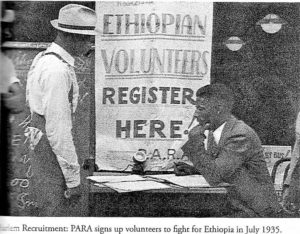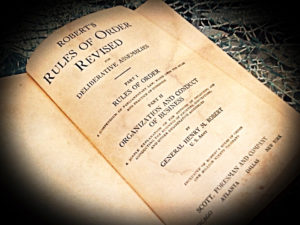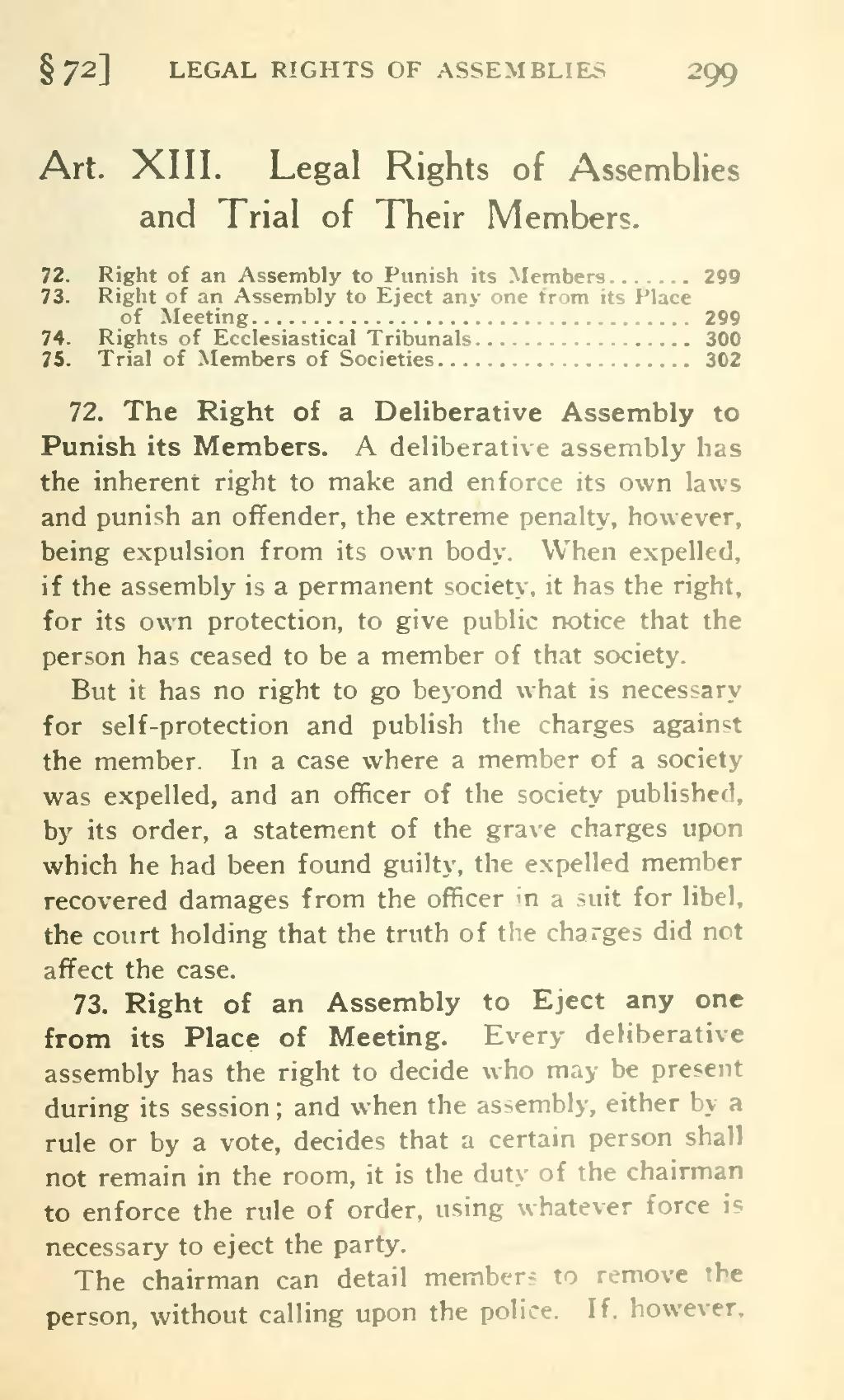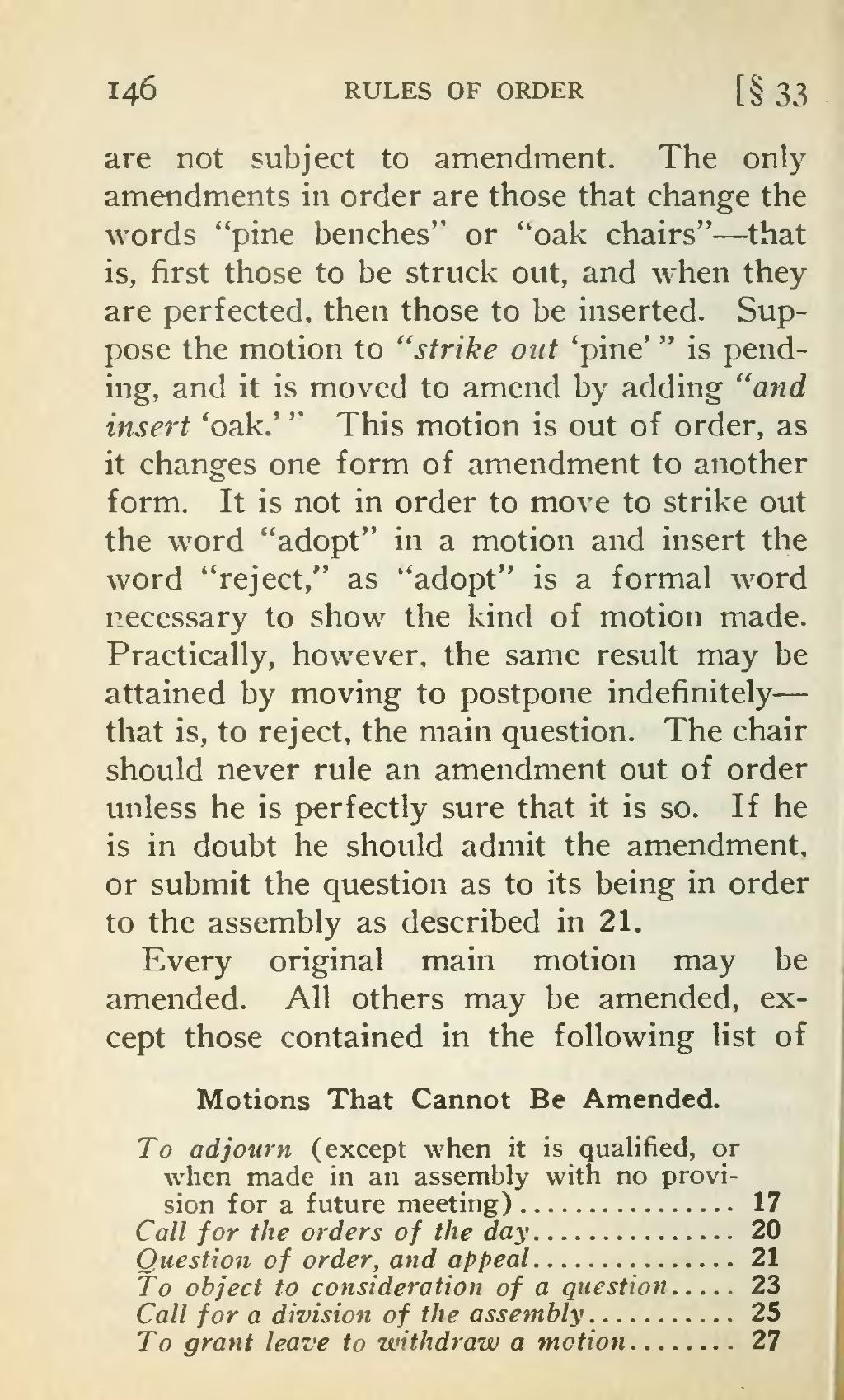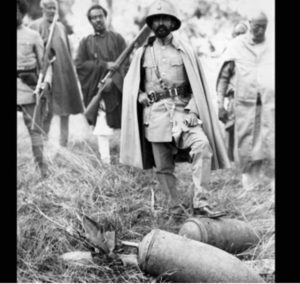![Battle of Adwa (Adowa), March 1st 1896]()
Mar 4, 2018 | Culture, Ethiopia, Historical Culture, History, Important Dates
The Battle of Adwa was fought on 1 March 1896

between the Ethiopian Empire and the Kingdom of Italy near the town of Adwa, Ethiopia, in Tigray. This climactic battle of the First Italo-Ethiopian War, was a decisive defeat for Italy and secured Ethiopian sovereignty. As the 20th century approached, Africa had been carved up among the European powers at the Berlin Conference of 1884–85. The two independent exceptions were the Republic of Liberia on the west coast, which had begun as a settlement of repatriated American slaves. These slaves were sent by the American Colonization Society, who believed blacks would face better chances for freedom in Africa than in the United States. The second independent nation being Ethiopia, or then still commonly known as Abyssinia. Italy was a relative latecomer to the imperialist scramble for Africa. Italy’s only possessions were African territories: Eritrea and Italian Somalia. Both were near Ethiopia on the Horn of Africa and both were impoverished. Italy sought to improve its position in Africa by conquering Ethiopia and joining it with its two territories.
(more…)
![Battle of Adwa (Adowa), March 1st 1896]()
Mar 3, 2018 | Culture, Ethiopia, Events, Historical Culture, History, Kotebe Addis Ababa
Yonas Tadesse/AFP/Getty Images
Tue 20 Feb 2018 09.00 GMT
The Addis Ababa massacre or Graziani massacre, in which 20,000 to 30,000 Ethiopians were killed by Italian occupying forces on 19 February 1937, is commemorated at the Holy Trinity Cathedral in the Ethiopian capital

Two Ethiopian war veterans sporting military regalia walk down a path during a memorial service in Addis Ababa commemorating the massacre


Ethiopian war veterans sporting military regalia attend the memorial service


Ethiopian war veterans and priests at the memorial service at the Kidist Selassie, or Holy Trinity Cathedral, a cathedral of the Ethiopian Orthodox Tewahedo church


An Ethiopian war veteran walks to the memorial service for the civilians massacred in reprisal for an attempt to assassinate Rodolfo Graziani, the colonial governor of Italian East Africa


A priest blesses war veterans


Marshal Rodolfo Graziani was one of Benito Mussolini’s commanders in the Italian colonial wars in Libya and Ethiopia before and during the second world war. He ordered the three-day massacre after an attempt on his life

Photograph: SeM/UIG via Getty Images
]]>
![Battle of Adwa (Adowa), March 1st 1896]()
Sep 26, 2017 | Culture, Ethiopia, Events, Historical Culture
“Meskel” in Ge’ez translated means “cross”, Meskel is an annual religious holiday in the Ethiopian Orthodox and Eritrean Orthodox churches, which commemorates the discovery of the True Cross by the Roman Empress Helena (Saint Helena) in the fourth century. Meskel occurs on the 17 Meskerem in the Ethiopian calendars (September 27, Gregorian calendar, or on 28 September in leap years).
Empress Helena was the mother of Emperor Constantine the Great, and was born at Drepanum (Heliopolis) to parents of humble means. She married Constantius Chlorus, and their son Constantine was born in 274. Constantius divorced her in 294 to further his political ambitions by marrying a woman of noble rank. After he became emperor, Constantine showed his mother great honor and respect, granting her the imperial title “Augusta.”
After Emperor Constantine became the sole ruler of the Western Roman Empire, he issued the Edict of Milan in 313 which guaranteed religious tolerance for Christians. Empress Helena, who was a Christian, may have influenced him in this decision. In 323, when he became the sole ruler of the entire Roman Empire, he extended the provisions of the Edict of Milan to the Eastern half of the Empire. After three hundred years of persecution, Christians could finally practice their faith without fear.
Read on…………………………………………………
]]>
![Battle of Adwa (Adowa), March 1st 1896]()
May 24, 2017 | Culture, Dates, Ethiopia, Events, Historical Culture, History, Important Dates
 commemoration of the 25th May 1963 foundation of the Organisation of African Unity (now known as the African Union). It is celebrated in various countries on the African continent, as well as around the world. On 25 May 1963, representatives of thirty African nations attended a meeting in Addis Ababa, Ethiopia, hosted by Emperor Haile Selassie I. By that time more than two-thirds of the continent had achieved independence, mostly from imperial European states. It was at this meeting, that the Organisation of African Unity was founded. The African Union theme for 2017 is “Harnessing Demographic Dividend through Investments in the Youth”. This theme was chosen since the future of our continent, our unity, our hopes and aspirations for the peaceful and prosperous Africa, rests in the hands of our young people.
In the late 1950’s, Dr. Kwame Nkrumah first President of Ghana and the first Prime Minister of Ghana introduced the concept of African Unity to the continent this concept, stressed the immediate unity of the African continent.
He was inspired by the writings of black intellectuals such as Marcus Garvey, W. E. B. Du Bois, and George Padmore, and his relationships with them. Much of his understanding and relationship to these men was created during his years in America as a student. Some would argue that his greatest inspiration was Marcus Garvey.
Read on…………………………………………………]]>
commemoration of the 25th May 1963 foundation of the Organisation of African Unity (now known as the African Union). It is celebrated in various countries on the African continent, as well as around the world. On 25 May 1963, representatives of thirty African nations attended a meeting in Addis Ababa, Ethiopia, hosted by Emperor Haile Selassie I. By that time more than two-thirds of the continent had achieved independence, mostly from imperial European states. It was at this meeting, that the Organisation of African Unity was founded. The African Union theme for 2017 is “Harnessing Demographic Dividend through Investments in the Youth”. This theme was chosen since the future of our continent, our unity, our hopes and aspirations for the peaceful and prosperous Africa, rests in the hands of our young people.
In the late 1950’s, Dr. Kwame Nkrumah first President of Ghana and the first Prime Minister of Ghana introduced the concept of African Unity to the continent this concept, stressed the immediate unity of the African continent.
He was inspired by the writings of black intellectuals such as Marcus Garvey, W. E. B. Du Bois, and George Padmore, and his relationships with them. Much of his understanding and relationship to these men was created during his years in America as a student. Some would argue that his greatest inspiration was Marcus Garvey.
Read on…………………………………………………]]>

Jan 19, 2017 | Culture, Dates: Jan-Jun, Ethiopia, Historical Culture, Important Dates, Religion, Uncategorized
baptism During the ceremonies of Timkat, the Tabot, a model of the Ark of the Covenant, is reverently wrapped in rich cloth and borne in procession and carried through the crowd in every city on the head of a priest. The Tabot/s are carried only by the most senior priests of the community and completely covered because they are too sacred for anyone to gaze at them. Even the head of the Ethiopian Orthodox church is forbidden to see it; only its guardians can look at it. The actual Ark of the Covenant is said to be in the city of Aksum, guarded by monks who have vowed not to leave the chapel grounds until death. Continue reading……………….
]]>

Jan 6, 2017 | Culture, Ethiopia, Historical Culture, Religion, Uncategorized
 retains the ancient Julian calendar in which Christmas falls on January 7th (of the Gregorian calendar.) The Ethiopian name given to Christmas is Ledet or Genna which, according to elders, comes from the word Gennana, meaning “imminent” to express the coming of Christ and the freeing of mankind from sin. It is a public holiday, and the day is a time of reflection, inner thoughts and healing Continue reading……………………………………….
]]>
retains the ancient Julian calendar in which Christmas falls on January 7th (of the Gregorian calendar.) The Ethiopian name given to Christmas is Ledet or Genna which, according to elders, comes from the word Gennana, meaning “imminent” to express the coming of Christ and the freeing of mankind from sin. It is a public holiday, and the day is a time of reflection, inner thoughts and healing Continue reading……………………………………….
]]>
 between the Ethiopian Empire and the Kingdom of Italy near the town of Adwa, Ethiopia, in Tigray. This climactic battle of the First Italo-Ethiopian War, was a decisive defeat for Italy and secured Ethiopian sovereignty. As the 20th century approached, Africa had been carved up among the European powers at the Berlin Conference of 1884–85. The two independent exceptions were the Republic of Liberia on the west coast, which had begun as a settlement of repatriated American slaves. These slaves were sent by the American Colonization Society, who believed blacks would face better chances for freedom in Africa than in the United States. The second independent nation being Ethiopia, or then still commonly known as Abyssinia. Italy was a relative latecomer to the imperialist scramble for Africa. Italy’s only possessions were African territories: Eritrea and Italian Somalia. Both were near Ethiopia on the Horn of Africa and both were impoverished. Italy sought to improve its position in Africa by conquering Ethiopia and joining it with its two territories.
between the Ethiopian Empire and the Kingdom of Italy near the town of Adwa, Ethiopia, in Tigray. This climactic battle of the First Italo-Ethiopian War, was a decisive defeat for Italy and secured Ethiopian sovereignty. As the 20th century approached, Africa had been carved up among the European powers at the Berlin Conference of 1884–85. The two independent exceptions were the Republic of Liberia on the west coast, which had begun as a settlement of repatriated American slaves. These slaves were sent by the American Colonization Society, who believed blacks would face better chances for freedom in Africa than in the United States. The second independent nation being Ethiopia, or then still commonly known as Abyssinia. Italy was a relative latecomer to the imperialist scramble for Africa. Italy’s only possessions were African territories: Eritrea and Italian Somalia. Both were near Ethiopia on the Horn of Africa and both were impoverished. Italy sought to improve its position in Africa by conquering Ethiopia and joining it with its two territories.
 between the Ethiopian Empire and the Kingdom of Italy near the town of Adwa, Ethiopia, in Tigray. This climactic battle of the First Italo-Ethiopian War, was a decisive defeat for Italy and secured Ethiopian sovereignty. As the 20th century approached, Africa had been carved up among the European powers at the Berlin Conference of 1884–85. The two independent exceptions were the Republic of Liberia on the west coast, which had begun as a settlement of repatriated American slaves. These slaves were sent by the American Colonization Society, who believed blacks would face better chances for freedom in Africa than in the United States. The second independent nation being Ethiopia, or then still commonly known as Abyssinia. Italy was a relative latecomer to the imperialist scramble for Africa. Italy’s only possessions were African territories: Eritrea and Italian Somalia. Both were near Ethiopia on the Horn of Africa and both were impoverished. Italy sought to improve its position in Africa by conquering Ethiopia and joining it with its two territories.
between the Ethiopian Empire and the Kingdom of Italy near the town of Adwa, Ethiopia, in Tigray. This climactic battle of the First Italo-Ethiopian War, was a decisive defeat for Italy and secured Ethiopian sovereignty. As the 20th century approached, Africa had been carved up among the European powers at the Berlin Conference of 1884–85. The two independent exceptions were the Republic of Liberia on the west coast, which had begun as a settlement of repatriated American slaves. These slaves were sent by the American Colonization Society, who believed blacks would face better chances for freedom in Africa than in the United States. The second independent nation being Ethiopia, or then still commonly known as Abyssinia. Italy was a relative latecomer to the imperialist scramble for Africa. Italy’s only possessions were African territories: Eritrea and Italian Somalia. Both were near Ethiopia on the Horn of Africa and both were impoverished. Italy sought to improve its position in Africa by conquering Ethiopia and joining it with its two territories.
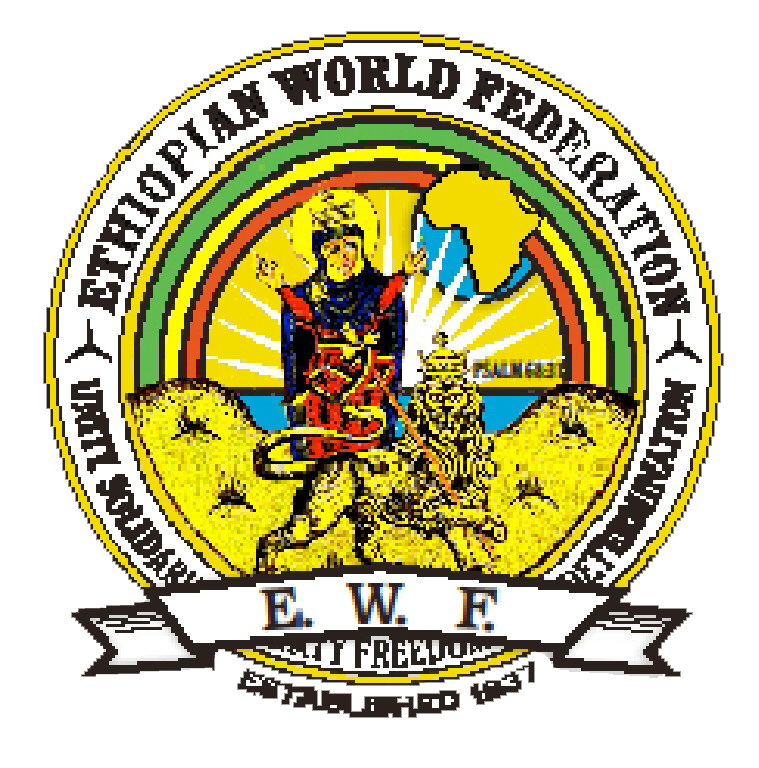












 commemoration of the 25th May 1963 foundation of the Organisation of African Unity (now known as the African Union). It is celebrated in various countries on the African continent, as well as around the world. On 25 May 1963, representatives of thirty African nations attended a meeting in Addis Ababa, Ethiopia, hosted by Emperor Haile Selassie I. By that time more than two-thirds of the continent had achieved independence, mostly from imperial European states. It was at this meeting, that the Organisation of African Unity was founded. The African Union theme for 2017 is “Harnessing Demographic Dividend through Investments in the Youth”. This theme was chosen since the future of our continent, our unity, our hopes and aspirations for the peaceful and prosperous Africa, rests in the hands of our young people.
In the late 1950’s, Dr. Kwame Nkrumah first President of Ghana and the first Prime Minister of Ghana introduced the concept of African Unity to the continent this concept, stressed the immediate unity of the African continent.
He was inspired by the writings of black intellectuals such as Marcus Garvey, W. E. B. Du Bois, and George Padmore, and his relationships with them. Much of his understanding and relationship to these men was created during his years in America as a student. Some would argue that his greatest inspiration was Marcus Garvey.
commemoration of the 25th May 1963 foundation of the Organisation of African Unity (now known as the African Union). It is celebrated in various countries on the African continent, as well as around the world. On 25 May 1963, representatives of thirty African nations attended a meeting in Addis Ababa, Ethiopia, hosted by Emperor Haile Selassie I. By that time more than two-thirds of the continent had achieved independence, mostly from imperial European states. It was at this meeting, that the Organisation of African Unity was founded. The African Union theme for 2017 is “Harnessing Demographic Dividend through Investments in the Youth”. This theme was chosen since the future of our continent, our unity, our hopes and aspirations for the peaceful and prosperous Africa, rests in the hands of our young people.
In the late 1950’s, Dr. Kwame Nkrumah first President of Ghana and the first Prime Minister of Ghana introduced the concept of African Unity to the continent this concept, stressed the immediate unity of the African continent.
He was inspired by the writings of black intellectuals such as Marcus Garvey, W. E. B. Du Bois, and George Padmore, and his relationships with them. Much of his understanding and relationship to these men was created during his years in America as a student. Some would argue that his greatest inspiration was Marcus Garvey.





